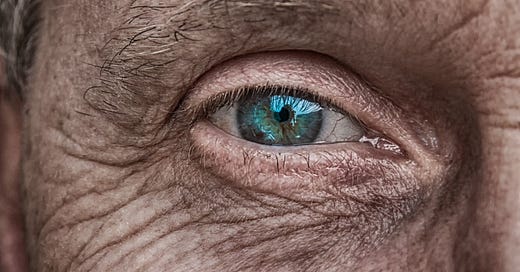Wouldn’t it be great if we could all cruise through a long life with few health problems, then die peacefully in our sleep when our number’s up.
That happy and healthy scenario is granted to just a lucky few. For the rest of us, stuff happens: accidents, genetic curveballs, inexplicable maladies. But too many people go through life with what are largely preventable chronic diseases, and that’s a tragedy.
By taking pre-emptive measures, you’ll have a better chance of reaching the end of the line having side-stepped the slings and arrows of most degenerative conditions.
One of those conditions is loss of vision. That’s considered a normal part of the ageing process, but it doesn’t have to be.
The most common diseases affecting the ageing eye are age-related macular degeneration, diabetic retinopathy, and cataract. And, as you’ll see below, the dietary approaches that are helpful for one tend to be helpful for all.
Age-related macular degeneration (AMD)
AMD is the most prevalent cause of loss of vision in the elderly and affects mainly people over the age of 55. In the UK, it causes approximately two-thirds of cases of visual impairment or blindness. Around 1 in 10 people in the U.S. are affected by the condition.
There may be no symptoms to begin with, but after a while subtle visual disturbances may appear, due to progressive degeneration of the macula, the central region of the retina. The retina is the light-sensitive tissue at the back of the eye that communicates with the brain via the optic nerve.
AMD is irreversible. Drug treatments are available, but they come with risks that include retinal detachment and lens injury.
Better still is prevention. Ageing itself is a risk factor, and there’s not much you can do about that. But the others are all manageable: smoking, high alcohol consumption, oxidative damage and dietary deficiencies are on the whole modifiable.
Below are some of the most robustly researched dietary deficiencies associated with degenerative eye conditions.
Keep reading with a 7-day free trial
Subscribe to Your Nutritionist Recommends to keep reading this post and get 7 days of free access to the full post archives.




